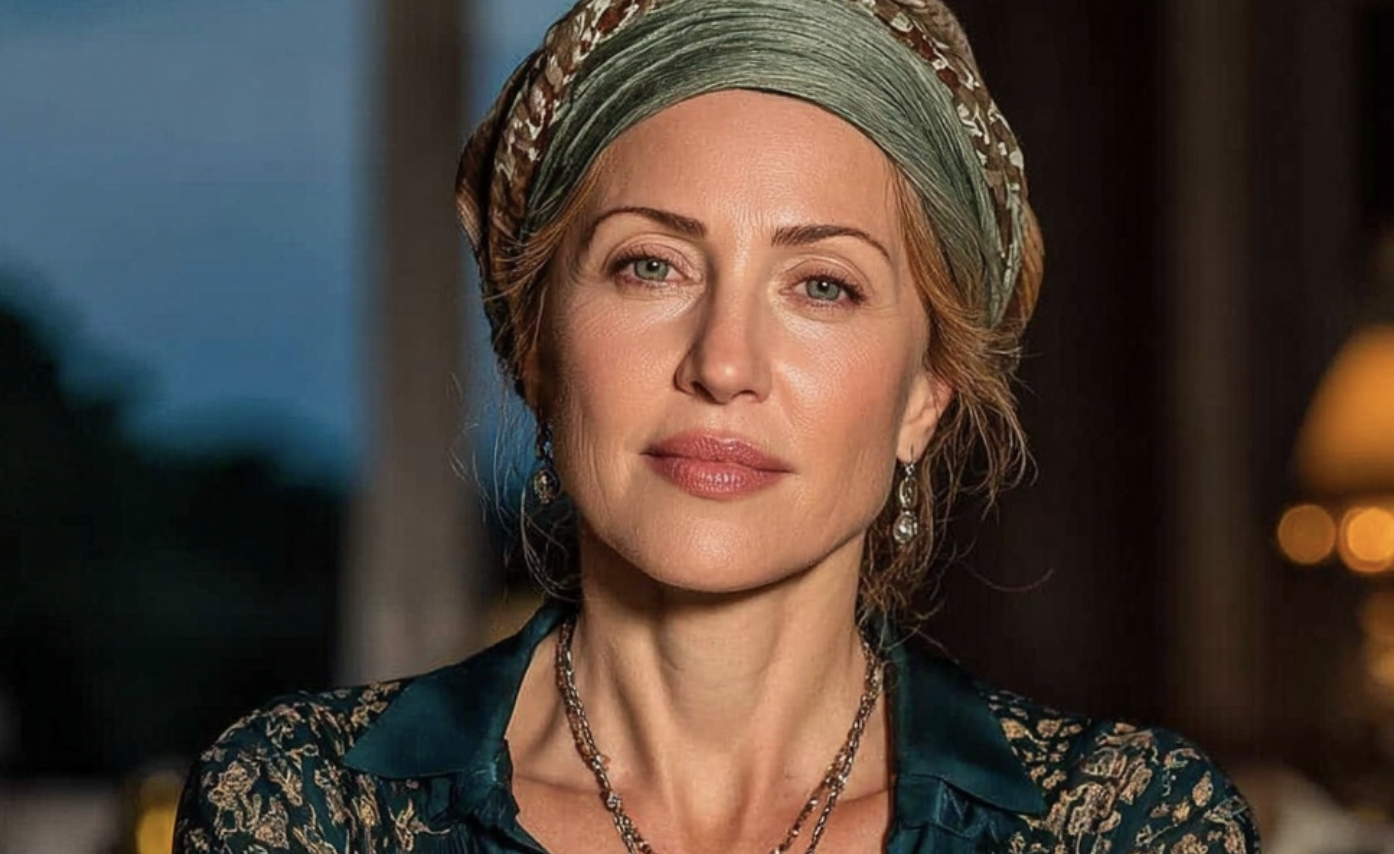Phone buzzed on the table, lighting up a social media notification.
Tamara Igorevna, my mother-in-law, had posted a new photo. “Enjoying the Turkish sunshine!” the caption read.
In the picture she was smiling happily with a cocktail in hand against a backdrop of azure sea. I zoomed in on the background. Just automatically.
There, at the water’s edge, stood two people. Slightly out of focus, but painfully recognizable.
My husband Dima—who was supposed to be on an “urgent business trip” to Yekaterinburg—had his arm around my younger sister Ira’s waist. Ira was laughing, head thrown back.
His hand lay on her waist so confidently. So familiarly.
The world didn’t collapse. Nothing snapped inside me.
The air in the room didn’t grow thick. I just looked at the screen while, in my head, a puzzle of dozens of tiny details I’d refused to notice for so long fell into place with perfect clarity.
His sudden evening meetings. Her mysterious “admirer” she didn’t want to talk about.
His irritation when I asked for his phone. Her averted eyes at the last family dinner.
His words: “Nastya, you’re tired, you need to rest,” when I cried after yet another failed attempt at pregnancy. And her words, said at the same time: “Maybe it’s just not meant to be for you two?”
Calmly, I took a screenshot. Opened an editor. Cropped out my mother-in-law’s beaming face and left only what mattered.
I sent the edited photo to Ira without a single word.
Then I called my husband. He didn’t pick up right away; I could hear the sound of waves and some music in the background.
“Yeah, Nastya, hi. I’m in a meeting, not a great time.”
His voice was lively, pleased. Nothing like a man swamped with work.
“Just wanted to ask,” I said evenly, without a tremor. “How’s the weather in Yekaterinburg? Not too hot?”
He hesitated for a second.
“It’s fine,” he threw out. “Work-like. Nastya, I’ll call you back, I really can’t right now.”
“Of course, call me back,” I smiled, though he couldn’t see it. “When you finish your ‘business trip.’”
I hung up. The phone vibrated again immediately. Tamara Igorevna. She’d clearly seen my comment under her photo: “How lovely! And do say hi to Dima and little Ira from me!”
I declined the call and opened the banking app. There it was—our joint account, where his salary was deposited and from which all the main expenses were paid. I saw the latest transaction: “Restaurant ‘Sea Breeze,’ Antalya. Paid 15 minutes ago.”
In a matter of seconds I opened a new account in my name and transferred every last kopeck there. Then I blocked the joint credit card linked to that account. His personal debit card was now just a useless piece of plastic.
Let them enjoy their vacation. On their own dime now. If they even have one.
No more than ten minutes passed before the phone started blowing up. Ira first. Ten missed calls, then a barrage of messages.
“Are you out of your mind? What kind of Photoshop is that? Why are you doing this?”
“Nastya, delete your comment right now! Dima’s mom is calling me in hysterics!”
“It’s not what you think! We ran into each other by accident!”
By accident. In another country. At a hotel my husband paid for. I read it all and felt nothing but a cold, ringing calm.
Then Dima joined in. His messages were different. First—rage.
“What the hell are you doing? What the hell? My card isn’t going through! Did you block it?”
“I don’t get it—what kind of games are these? Answer the phone!”
I stayed silent. I went to the closet and took out a big suitcase. His suitcase. Opened it and put it on the bed. While I methodically folded his things, the phone rang again. My mother.
“Anyechka, sweetie, what happened? Ira just called me in tears. Says you’re accusing her of something…”
“Mom, everything’s fine. It’s just that Ira is vacationing in Turkey with my husband. And he’s supposed to be on a business trip.”
Mom fell silent, searching for words.
“Nastya, but you know what Ira is like… She’s so flighty. Maybe it’s just a misunderstanding? You’re the older sister, you should be wiser. You can’t just hack at things like this.”
“Wiser means letting my sister sleep with my husband?” I asked, my voice icy.
“There’s no need to put it that way… You should figure it out…”
“Thanks for the advice, Mom,” I said and hung up.
A new wave of messages from my husband. The tone shifted from angry to pleading.
“Nastya, I don’t know what you’ve made up for yourself, but you left me without a cent in a foreign country! That’s low!”
“Please unblock the card. We’ll come back and I’ll explain everything. You don’t want to destroy our family over some nonsense, do you?”
Nonsense. Ten years of marriage he called nonsense. I smirked and tossed his shaving kit into the suitcase. The final chord was my mother-in-law. She sent a voice message, dripping with venom.
“I always knew you were a snake! Decided to ruin my son’s life, did you? He found you in the gutter, and you… He’ll be happy to be rid of you! Ira’s a good girl, a looker, not like you—a gray mouse!”
I didn’t finish listening. I deleted the message and blocked her number. Then I took a photo of the packed suitcase by the front door. And sent that photo to Dima.
With a single caption: “It’s waiting for you. As are the divorce papers.”
There was a lull for almost five days. In that time I changed the locks on my apartment, consulted a lawyer, and called Dima’s boss, Igor Semenovich, an old friend of our family.
I didn’t complain, no.
I simply “shared a concern,” saying that Dima had flown to Turkey on a “last-minute package,” though he was supposed to be at a critical site in Yekaterinburg, and that I was very worried about his condition. Igor Semenovich understood without extra words.
On the evening of the fifth day the doorbell rang. In the peephole stood the two of them. Rumpled, angry, with sunburned noses.
I didn’t open.
“Nastya, open the door!” Dima’s voice was thick with fury. “Stop putting on a circus!”
He slid his key into the lock. Useless.
“You changed the locks?” amazement crept into his voice.
I calmly opened the door, leaving the chain on. I was wearing my best dress, light makeup, red lipstick.
“What are you doing here?” I asked politely.
“I came home!” Dima tried to yank the door.
“This is my home, Dima. And yours, it seems, is now wherever my sister is.”
That’s when Ira stepped forward.
“Stop playing the victim, Nastya!” she hissed. “So yes, it happened. Dima fell in love with me! You just need to accept it. You can’t give him anything anyway. Not passion, not even a child.”
That was a low blow. They both knew what my two miscarriages had cost me.
And in that moment, something clicked. The so-called “wise older sister” inside me died.
I looked at Ira. Straight into her brazen eyes. And smiled.
“A child? Are you sure you want to talk about that? You haven’t even paid off the loan for your ‘procedure’ yet. You couldn’t carry to term, and your man vanished afterward…”
Ira’s face turned as white as a sheet. Dima stared between her and me, stunned.
“What loan? What child?” he muttered.
“Oh, he doesn’t know?” I feigned surprise. “Well, then you’ll be interested to learn that your new ‘look-er’ has been living off me for the last six months. And not just her.”
I turned to Dima.
“Your things,” I nodded toward the suitcase in the hall, “a courier will deliver to your mother tomorrow. The divorce papers are with my lawyer. And now, be so kind as to clear my doorstep.”
Without waiting for an answer, I slowly and deliberately closed the door right in their faces. The lock clicked.
For a while there were muffled shouts behind the door. Accusations flew both ways. He yelled about a child, she—about him being broke. Then silence.
The next morning I called my father. I told him everything. Calmly, without tears, just the facts. He was quiet for a long time, then said, “I understand, daughter. You did everything right.”
A week later Dima called. From an unfamiliar number. His voice was completely different.
“Nastya… forgive me. I was an idiot. That Ira… she nagged me to death.”
I listened in silence.
“I got fired. Igor Semenovich said I let him down. I’m living with my mother, and she nags me from morning to night. Nastya, I’ve lost everything. Let’s start over?”
I paused.
“You know, Dima, I took a look at our joint accounts. And I found a couple of interesting loans taken out in my name without my knowledge. For ‘business development.’ So, I sold our car. It was just enough to pay everything off.”
A heavy silence hung on the other end.
“How… sold it? You had no right!”
“I had every right to protect myself and my future,” I cut him off. “And your future is now entirely in your hands. Live with that.”
I ended the call.
A year later.
I was sitting in a small café on one of Florence’s side streets, sketching in my notebook.
Over the year I’d traveled almost all over Italy, and my old, neglected passion for drawing had turned into something more. I started selling my watercolors online.
That day I happened to open a social network. And saw a message from my cousin.
“Nastya, hi! I saw your drawings—they’re out of this world! Listen, here’s the thing… Remember your Dima? His mother, Tamara Igorevna, called my mom recently, crying.”
I smirked and kept reading.
“Turns out your Dima fell to pieces after the divorce. Lived with her for a month, then she kicked him out herself. Supposedly he left to find work and just disappeared.
And with your Ira—what a circus. She tried to move back in with her parents, but Uncle Slava wouldn’t let her set foot over the threshold. Said he wants nothing to do with her until she apologizes to you.
She drifted around, found herself some guy, moved in with him. He kicked her out two months later. Word is, she tried to milk him for money.
Now she’s working the register at a 24-hour shop. And the funniest thing,” the message ended, “is that Tamara Igorevna now tells everyone what a wonderful daughter-in-law she lost.”
I closed the message. There was no gloating, no satisfaction. There was… nothing. Their life, their choices, their consequences. They wrote their own script.
I looked at my drawing—sun-washed square, pigeons drinking from a fountain.
I remembered how Dima laughed at my hobby, calling it “kid’s scribbles.” How Ira said artists are paupers.
They both tried to jam me into the frame of their world.
I put my pencil down and took a sip of espresso. The bitterness of the coffee tasted good.
Victory isn’t when your enemies are humiliated. Victory is when their lives and opinions no longer matter to you at all.
And at that moment, under the warm Italian sun, I realized I had finally, completely won.



